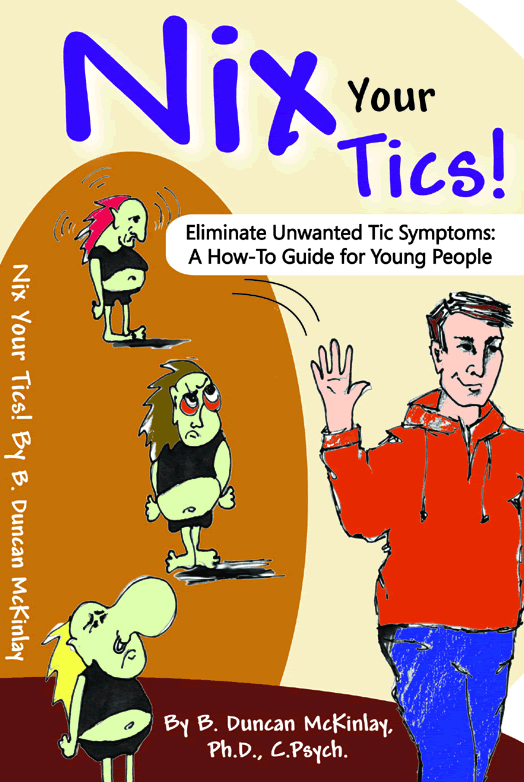Home
Nix Your Tics
Documentary
Writings
Youth Haven
Ask Dr. Dunc
Accolades
Presentations
Resources
Links
Disclaimer
Contact
If
you are a new visitor, diagnosed with a difference, please read this introduction
letter to you.
For
all other new visitors, Dr. McKinlay also has a
special introduction letter to you.

Nix Your Tics!
The Second
(E-)dition from "Life's A Twitch! Publishing". Click here to learn more.
To watch the Life's A Twitch! documentary via streaming video, click
here.
If
you would like to reprint writings from this site, please click
here.
Before
Signing the Guestbook

 
To
return to the 'Print Profiles' archive page, please click
here.
|
 |
1998 - 2018 |
 |
|
|
Tourette's
syndrome vexing, misunderstood
BY
CHEN CHEKKI
THE
CHRONICLE-JOURNAL
Sunday,
January 11, 2004: Duncan McKinlay didn't know what was wrong
with him at the age of seven during a van ride with his dad.
Now
30, he recalls how his abdominal muscles started clenching on their
own and he thought he had to pee several times. His dad had to stop
the van every time.
McKinlay
never did need to relieve himself outside the van, and his dad thought
he was just faking the whole episode.
The
man from London, Ont., has been speaking to people during the last
two days in Thunder Bay for his first time about having Tourette's
syndrome. It is estimated that about 200 people in Thunder Bay have
Tourette's.
"The
12 years I went undiagnosed did more damage than the symptoms ever
could," he told The Chronicle-Journal yesterday.
McKinlay
grew up undiagnosed with the disorder until he was 19. He said kids
can grow up to be very depressed and asocial.
The
problem can cause people to make several involuntary movements and
sounds that may include uttering obscenities.
It
magnifies all movements, noises, thoughts and feelings and puts
them closer to one's exterior, along with possible hyperactivity
and attenion deficit disorder, McKinlay added.
"The
brakes in the brain aren't working very well," he said. "They're
leaky."
Two
main ways of treating it is by suppressing it with some medications
or by channeling the involuntary impulses into something positive
-- which is what he prefers.
Now
a psychologist, he has been going across Canada for the past three
years to raise awareness of Tourette's. McKinlay calls it "the
road show."
His
first visit to Thunder Bay was sponsored by the Tourette Syndrome
Foundation of Canada and assisted by some local school boards. He
has spoken to a few hundred local parents, children, Tourette's
sufferers and mental health professionals about the disorder.
About
one percent of people have the disorder that may partly be genetically
caused, McKinlay said.
The
disorder damages people mostly through attitude and other people's
misperceptions, McKinlay said.
He
said if other people do not understand what is happening to a Tourette's
sufferer, they may think the person is trying to gain attention or
act out.
And
that's why he is here.
"It's
a massive demystification session," McKinlay said. "What
I tend to find is 99 percent of the population, they just don't understand."
He
is starting a Tourette's clinic in London to help assess people
with the disorder, as well as to research treatments.
It
will join a small handful of other Tourette's centres across Canada,
which are in Winnipeg, Vancouver, and Toronto.
"Hopefully
more and more will pop up," McKinlay said.
There
is also some help in Thunder Bay.
Tourette
Syndrome Services Thunder Bay, a non-profit community group gives
support to people affected by the disorder and those dealing with
them.
They
can accompany parents of children with Tourette's going to meet teachers
to assist with questions about the disorder. The group will aslo accompany
those with Tourette's while they meet with social services agencies
and doctors.
The
group also holds meetings on the third Wednesday of each month.
"That's
extremely beneficial to some parents," said Carl Lockyer, the
group's executive director.
Top
of Page |